Introduction:
In Canadian law, using physical force against another person without their consent is generally a criminal offence. However, there are specific circumstances recognized by Canadian law where an individual is justified in using force to defend or protect their property. It is crucial to comprehend these situations to navigate the complexities of the legal system. If you find yourself facing such a situation, seeking legal advice from professionals like Smyllie Law is essential.
When Can I Defend My Property?
Defending your property in Canada is governed by a strict legal framework outlined in section 35 of the Criminal Code. To successfully claim defence of property, four key elements must be met:
- Possession: The accused must reasonably believe that they were in peaceable possession of the property, meaning no serious claims against their lawful entitlement.
- Threat to Property: The accused must believe, on reasonable grounds, that the complainant was about to enter, was entering, or had entered the property without lawful authority, or was about to take, damage, or destroy the property.
- Purpose: The accused’s actions must be motivated by the purpose of defending or protecting their property from being entered, taken, damaged, or destroyed.
- Reasonable Response: The accused’s response must be reasonable in the circumstances, evaluated based on factors such as the nature of the threat, immediacy, available alternatives, the parties’ roles, and the proportionality of the response.
Burden of Proof:
It is important to note that the burden of proof lies with the Crown prosecutor. The Crown must establish, beyond a reasonable doubt, that the accused’s actions did not align with the defence of property criteria. The accused is not obligated to prove their innocence but may need to provide evidence to initiate the defence in court.
When Can I Not Defend My Property?
Certain scenarios negate the possibility of using defence of property. For instance, if the complainant was entitled to possess the property by law, or if the accused lacked a legitimate claim of right to the property, the defence cannot be invoked. Additionally, force cannot be used against individuals performing lawful duties, such as law enforcement, unless there is a reasonable belief of unlawful conduct.
Conclusion:
While the concept of defending property might seem straightforward, Canadian law has specific and intricate guidelines defining its applicability. If you are facing criminal charges related to defending your property, consulting experienced legal professionals like those at Smyllie Law is essential. Understanding these legal nuances is crucial in mounting a successful defence in court.
